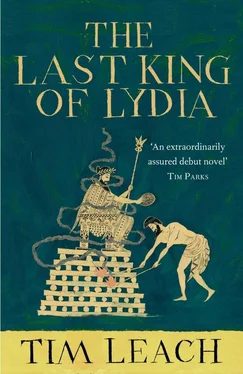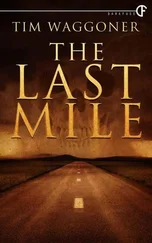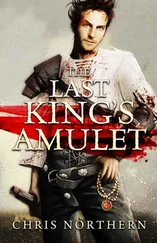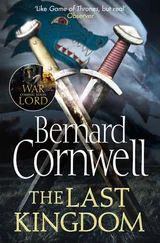Tim Leach - The Last King of Lydia
Здесь есть возможность читать онлайн «Tim Leach - The Last King of Lydia» весь текст электронной книги совершенно бесплатно (целиком полную версию без сокращений). В некоторых случаях можно слушать аудио, скачать через торрент в формате fb2 и присутствует краткое содержание. Год выпуска: 2013, ISBN: 2013, Издательство: Atlantic Books Ltd, Жанр: Исторические приключения, на английском языке. Описание произведения, (предисловие) а так же отзывы посетителей доступны на портале библиотеки ЛибКат.
- Название:The Last King of Lydia
- Автор:
- Издательство:Atlantic Books Ltd
- Жанр:
- Год:2013
- ISBN:9780857899200
- Рейтинг книги:5 / 5. Голосов: 1
-
Избранное:Добавить в избранное
- Отзывы:
-
Ваша оценка:
- 100
- 1
- 2
- 3
- 4
- 5
The Last King of Lydia: краткое содержание, описание и аннотация
Предлагаем к чтению аннотацию, описание, краткое содержание или предисловие (зависит от того, что написал сам автор книги «The Last King of Lydia»). Если вы не нашли необходимую информацию о книге — напишите в комментариях, мы постараемся отыскать её.
The Last King of Lydia — читать онлайн бесплатно полную книгу (весь текст) целиком
Ниже представлен текст книги, разбитый по страницам. Система сохранения места последней прочитанной страницы, позволяет с удобством читать онлайн бесплатно книгу «The Last King of Lydia», без необходимости каждый раз заново искать на чём Вы остановились. Поставьте закладку, и сможете в любой момент перейти на страницу, на которой закончили чтение.
Интервал:
Закладка:
‘I am not a wise man, am I?’
‘No, Croesus. You are not.’
‘What do I do?’
Isocrates stared at him, and shrugged.
‘Learn quickly,’ he said.
The Slave
545 BC
1
The Persian army slept.
From a distance, the torchlit gathering of men could be mistaken for a city. Eyes would play tricks, connecting the disparate points of fire to form impossible architectures, conjuring a city of the mind out of nothing. It was only on drawing closer that one could see past the fires to the outlines of tents and sleeping pallets stretched out in every direction. A hundred thousand souls, sleeping and dreaming in a land that was not theirs. Small fires ringed the edges of the encampment where sentries fought to stay awake, watching the stars and counting away the time until they were relieved, and could rejoin the dreaming army.
At the heart of this gathering, this temporary city of the plains, Croesus, a torch dripping sparks in his hand, moved through the tents and sleeping men towards the place where Cyrus held court that night. He looked warily into corners where men might be hiding in ambush, watchful of figures that might lurk in the darkness. In his first few months in service to the Persian king, some of the servants had found pleasure in beating this slave who had once been a king. They called him to some quiet corner on a false errand, knocked him to the ground, and whipped him with their belts until his tunic was stuck to his back with blood. He had learned to be cautious.
No one stopped him on his journey across the camp, the few sentries he passed nodding to him without interest. They were used to the king’s slave being summoned at all hours, day and night. Distant at first, then drawing closer, he saw the ring of torches that identified the king’s open-air council for that night.
Cyrus ruled a nomad’s court, and whether it was in a forest clearing or the burned-out palace of a conquered king, he did not seem to care. He had spent his life as a king travelling at the head of an army, never remaining in the same place for more than a few days, for Cyrus was the only centre the kingdom had, his army its capital city. Not content with the half-dozen throne rooms that Croesus enjoyed in Sardis, he travelled through his empire scattering thousands of them, seeding the earth with ghostly courts that were used once and never again, marking his kingdom like an animal.
Cyrus’s court that night was bounded by a circle of tall torches thrust into the ground. At the edge of this circle, his bodyguards slouched on the ground like idle dogs, as if mocking the rigid attention of the ordinary soldiers. Croesus had seen them move fast enough to know that their indolence was merely an act. In the centre, a leaning stone the height of a small child served as a throne: the only feature that marked this circle out from the arid plains that stretched out in every direction.
When Croesus had left the court a few hours before, dismissed by the king to go and sleep, the gathering had been relaxed. A few issues of future strategy lightly discussed, without any sense of impending catastrophe. But there was now an air of near panic. The men of the court spoke over and across each other all at once. Some shouted each other down, others gathered at the edge of the circle and whispered to one another. Only Cyrus was calm, waiting patiently and silently in the middle of the circle like a man waiting for a storm to blow itself out. He alone noted Croesus’s arrival.
‘Ah, Croesus,’ he said, his slightly raised voice a sign for the others to fall silent. ‘How good of you to join us.’
All eyes turned to Croesus. He dropped his eyes to the ground. ‘You sent for me?’
‘Yes I did. Cyraxes? Tell him.’
The old man cleared his throat. ‘An emissary from Sparta has reached the camp,’ he said. ‘We didn’t know he was in the country, let alone this close to us.’ He shot a glance at Harpagus. ‘Our spies, it seems, are not as infallible as some have claimed.’
Harpagus ignored him. ‘I still think we should dispose of him. We have nothing to fear if he doesn’t report back to his master.’
‘Kill an emissary? Can you think of a more foolish idea?’
‘He knows too much.’
‘And whose fault is that?’
‘You don’t have to repeat what we all know,’ Harpagus said. ‘If you have nothing else to say, keep quiet.’
‘It is your failing that-’
‘Enough.’ Cyrus did not raise his voice, but the word cut through the air and brought silence with it. The king turned to Croesus and smiled thinly. ‘So. The Spartans are considering an expedition across the sea.’
‘What happens if they do?’
‘They will join with the Ionians, and we cannot stand against such an alliance. If they come, I expect we will fight a bloody war and be destroyed, Croesus. More fathers burying sons, as you once said.’
‘What can I do?’
Cyrus pointed to a place beside his throne. ‘Kneel at my side, and don’t speak unless I tell you to.’
Slowly, his body still unused to responding to such commands, Croesus did as he was told.
‘Good.’ Cyrus looked at Harpagus. ‘Admit him to our presence.’ He looked around the circle. ‘And the rest of you, be quiet. You stink of fear. If you can’t control yourselves, then leave.’
The court settled, and a single figure approached from the darkness. The bodyguards gave him the briefest of glances as he passed them, but Croesus saw them tense, their hands disappearing into the folds of their robes.
Croesus looked at the emissary, and recognized the man. It was Lakrines, the Spartan who had come to his court, many years before, when he was a king who could still dream of empires. The Spartan’s hard face had not changed, though now he wore his hair long, down far past his shoulders, and Croesus wondered what strange new custom had prompted the change. He dropped his head and studied the ground, but Lakrines paid no attention to a slave. He had eyes only for Cyrus.
The Persian king looked at the emissary and said nothing, stretching out the silence at his leisure. ‘You bring a message?’ he said at last.
‘I do.’
‘And what is it?’
‘The kings of Sparta command you to withdraw from these lands, and return to the east, Cyrus. That is all.’
Cyrus stared at him blankly for a moment. Then he asked, ‘Who are the Spartans?’
The emissary must have anticipated many responses, but not this one. Eventually, he smiled thinly. ‘You are joking, I think.’
‘I have never heard of you.’
‘We are the greatest warriors in the world, Cyrus. The most powerful of the Hellenes. You would do well to listen to us.’
‘Your fame, I’m afraid, has not crossed the sea to reach me. I think you are a long way from Sparta, to be giving commands to a king.’
‘I have seen your army. We have little to fear from you.’
‘Perhaps you should speak more carefully.’
‘We both know you won’t harm me, Cyrus.’
‘Do we?’ Cyrus looked off into the distance and said nothing for a time. Without looking back at the emissary, he said, ‘Tell me, what lies at the centre of your city?’
The Spartan narrowed his eyes. ‘A market square, where the tradesmen gather. What does that matter?’
‘I thought so. You see, in Persia, we have no such thing. We do our business behind closed doors. We do not make a god of trade. You claim to be great warriors. I do not know your people, but I have no fear of a nation of men who have a place to meet, swear this and that and spend all day cheating one another. Yours is a nation of merchants, not warriors.’
‘You cannot frighten me with insults, Cyrus. We have the blessing of the Gods. Our oracle says that we will win a great victory if we fight against Persia.’
Читать дальшеИнтервал:
Закладка:
Похожие книги на «The Last King of Lydia»
Представляем Вашему вниманию похожие книги на «The Last King of Lydia» списком для выбора. Мы отобрали схожую по названию и смыслу литературу в надежде предоставить читателям больше вариантов отыскать новые, интересные, ещё непрочитанные произведения.
Обсуждение, отзывы о книге «The Last King of Lydia» и просто собственные мнения читателей. Оставьте ваши комментарии, напишите, что Вы думаете о произведении, его смысле или главных героях. Укажите что конкретно понравилось, а что нет, и почему Вы так считаете.












